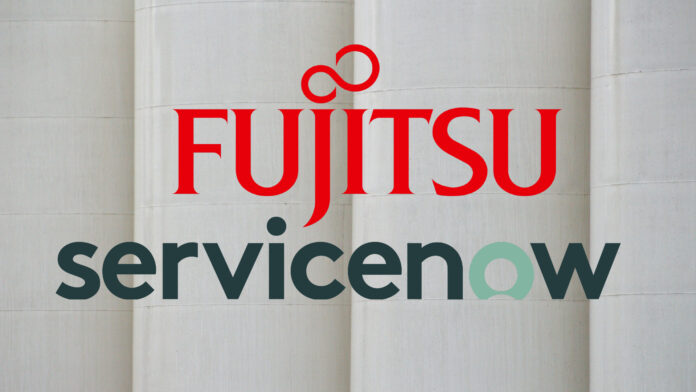Japanese IT consultancy Fujitsu and US business software provider ServiceNow are to combine on digital-change sales to enterprises. The duo have signed a deal to open a joint innovation centre (‘Innovation Center’) to showcase new edge/cloud analytics solutions to automate business processes in the manufacturing sector, tying in sundry connectivity and computing architectures, plus all the AI firepower they can muster. They will also integrate their products and services to tailor and launch new Industry 4.0 solutions for enterprises, they said.
They called it a “strategic commitment to launch innovative cross-industry solutions”. They said they will target the manufacturing sector, initially, specifically with a view to develop commercial solutions to manage overall engineering chain management (ECM) and supply chain management (SCM) operations. The new “Fujitsu-ServiceNow” innovation centre will open in Kawasaki City, in Japan, in the second half of 2024, and focus the development and show the results of their new joint innovations. Their solutions will “maximise value for customers globally”, they said.
They declared: “As organisations across industries evolve from decades of manual work, legacy systems, and limited resources that slow operations and impact services, ServiceNow and Fujitsu will use automation to help businesses streamline siloed enterprise systems, applications, and complex business processes.” ServiceNow, which has rebranded itself in recent years as “the AI platform for business transformation”, makes software to align and combine business process data in a single platform; silo-busting has been its game from the start.
The deal with Fujitsu, announced this week at the US firm’s Knowledge 2024 customer and partner event, is focused on “cloud-based offerings that contribute to streamlining customer operations and realising data-driven management”. Fujitsu will wrap the ServiceNow proposition into its so-called Uvance consultancy model, which basically recasts its straighter digital-change consultancy (called ‘Fujitsu Customer Advisory and Support Excellence’; CASE)) as part of a broader global drive on sustainability (“to grow businesses and solve societal issues”).
Fujitsu will “expand its own use” of the ServiceNow (Now) platform, it said, including ServiceNow’s Impact “value acceleration solution”, which will flow business process insights back into its CASE advisory recommendations, and its Now Assist AI tool, which will augment its own Fujitsu Kozuchi generative AI offering, and also go to inform new product development. Fujitsu suggested the combination of Now Assist AI and Fujitsu Kozuchi will “reduce incidents by approximately 30 percent”, without specifying the types of incidents, nor how.
Bill McDermott, chairman and chief executive at ServiceNow, said: “Enterprises worldwide need a digital business model that frees up resources to fuel innovation. This presents a massive opportunity for our partnership with Fujitsu. ServiceNow’s innovative, AI-first platform alongside Fujitsu’s deep industry expertise and global scale, will bring incredible value to our customers, turning their most complex operational challenges into opportunities for growth.”
Yoshinami Takahashi, vice president for Uvance at Fujitsu, said: “This new strategic partnership… will deepen the integration of our respective technologies and practical knowledge, including in areas like generative AI, as part of our efforts to develop a digital society, one of Fujitsu’s materialities. The new cross-industry offerings created through this partnership will provide even greater value to more customers and society.”

